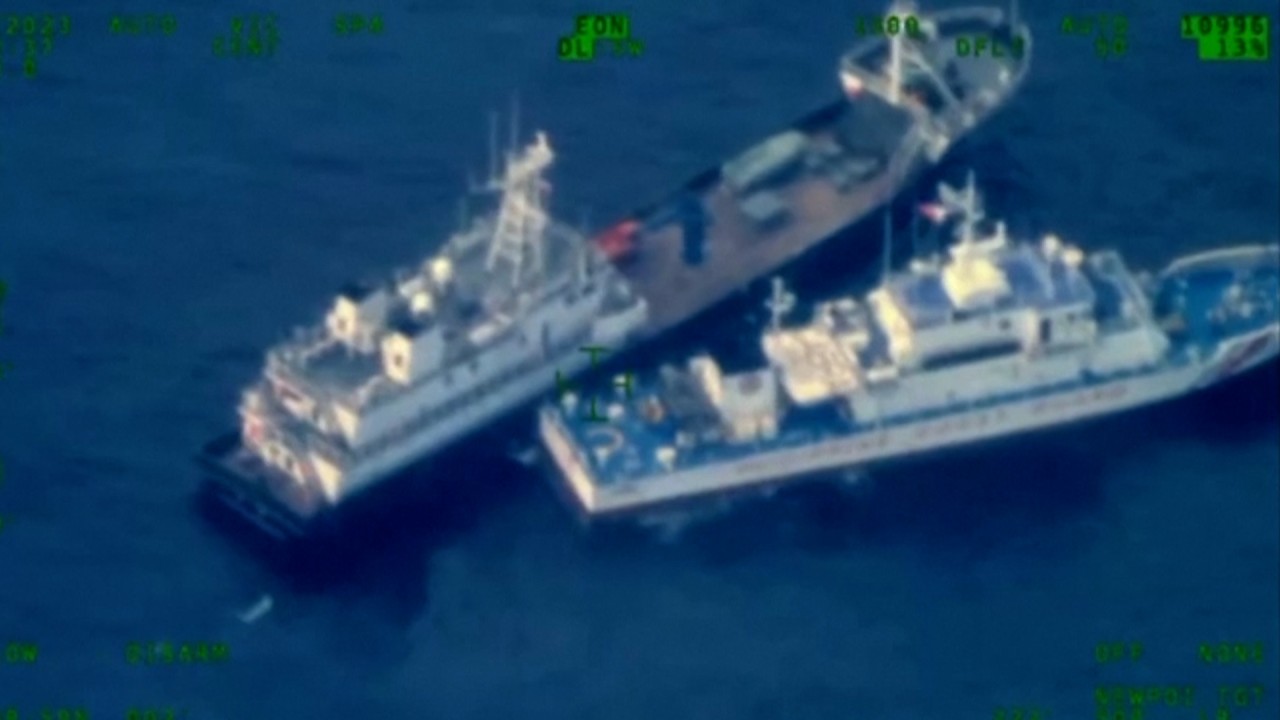South China Sea: Philippines asks Malaysia, Vietnam for ‘our own’ code of conduct amid slow progress with Beijing
Speaking in Hawaii at a live-streamed event, Marcos Jnr said escalating tension in the South China Sea required the Philippines to partner with allies and neighbours to maintain peace in the busy waterway, with the situation now “more dire”.
“We are still waiting for the code of conduct between China and Asean and the progress has been rather slow unfortunately,” Marcos Jnr said, referring to efforts by the grouping of Southeast Asian nations.
“We have taken the initiative to approach those other countries around Asean with whom we have existing territorial conflicts, Vietnam being one of them, Malaysia being another and to make our own code of conduct.
“Hopefully this will grow further and extend to other Asean countries.”
South China Sea disputes should not define Beijing-Manila ties, Marcos tells Xi
South China Sea disputes should not define Beijing-Manila ties, Marcos tells Xi
The embassies of China, Malaysia and Vietnam in Manila did not immediately respond to a request for comment on a possible code.
The leaders discussed ways to reduce tension in the disputed strategic waters after a series of confrontations this year.
In the past few years, Asean and China have worked towards creating a framework to negotiate a code of conduct, a plan dating as far back as 2002. But progress has been slow despite commitments by all parties to advance and accelerate the process.

Talks on components of the code have yet to start, with concerns about how far China, which claims ownership of most of the South China Sea, is committed to a binding set of rules that Asean nations want to align with existing international law.
China stakes its claim on its maps with the use of a “nine-dash line” that loops as far as 1,500km (900 miles) south of its mainland, cutting into the exclusive economic zones of Brunei, Indonesia, Malaysia, the Philippines and Vietnam.
Manila and Beijing have engaged in on-off confrontations for years as China has become more assertive in pressing its maritime claims, alarming neighbours and other nations operating in the key trade route, such as the US.
China has turned submerged reefs into military installations equipped with radar, runways and missile systems, some inside the Philippines’ exclusive economic zone.
Vietnam expands South China Sea island build-up at a rapid pace
Vietnam expands South China Sea island build-up at a rapid pace
“The nearest reefs that the PLA has started to show interest in … for building bases have come closer and closer to the Philippine coastline,” said Marcos Jnr, referring to the People’s Liberation Army Navy of China.
“The situation has become more dire than it was before.”
By contrast, Marcos Jnr added, the United States “has always been behind us … not only in terms of rhetoric, but also in terms of concrete support”.


